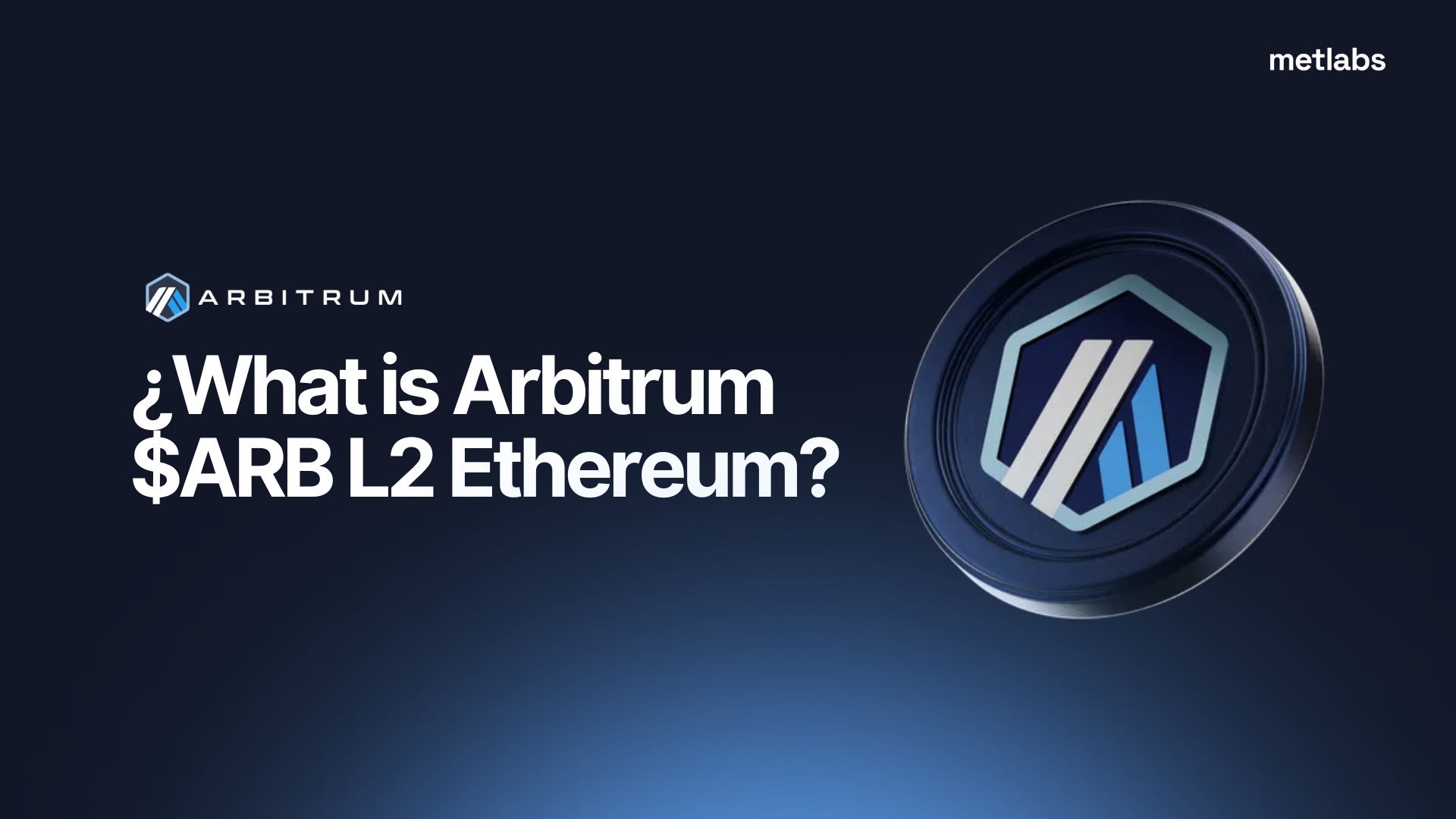Arbitrum ($ARB) is a layer 2 solution designed to enhance the capabilities and efficiency of Ethereum smart contracts, with a focus on increasing its speed and scalability, as well as adding privacy features. It was developed by Offchain Labs and utilizes a technique called transaction rollups to increase processing capacity and reduce costs, while still maintaining the security provided by the Ethereum blockchain. This approach allows for more efficient execution of Ethereum smart contracts and transactions, addressing issues such as low efficiency and high execution costs that have impacted the user experience on Ethereum.
Offchain Labs, the company behind Arbitrum, was founded by Ed Felten, Steven Goldfeder, and Harry Kalodner, all with a solid background in computer science, cryptography, and blockchain from Princeton University. In 2021, the company managed to raise $120 million in its Series B funding round, reaching a valuation of $1.2 billion with support from investors such as Lightspeed Venture Partners, Polychain Capital, Pantera Capital, and renowned entrepreneur Mark Cuban.
Arbitrum Innovations
Arbitrum introduces several innovations in the scalability solutions space for Ethereum. First, it supports smart contracts and transactions without modifications to the Ethereum Virtual Machine (EVM), meaning any existing decentralized application (DApp) on Ethereum can run on Arbitrum without the need for code changes. This compatibility removes significant barriers for developers when migrating applications to the Arbitrum environment.
Arbitrum’s Optimistic Rollups technology allows processing thousands of transactions per second (TPS), offering low fees and fast finality, all without sacrificing Ethereum’s security guarantees. Additionally, Arbitrum provides unique flexibility to developers, allowing deployment of programs written in popular programming languages like Rust and C++, through Stylus, its EVM+ equivalence feature.
A crucial aspect of Arbitrum is its focus on decentralization. Unlike other solutions that rely on centralized operators or sequencers to order transactions, Arbitrum utilizes a decentralized network of validators who stake ARB tokens and earn fees for securing the network.
Despite its advantages, Arbitrum is not without challenges. Optimistic Rollups, while efficient, involve a challenge period that can lengthen the time required to withdraw tokens, contrasting with ZK rollups that allow for faster fund movements without requiring a challenge period. Additionally, the security of funds in Arbitrum can be compromised by errors in the implementation of the Arbitrum Virtual Machine (AVM) or the collapse of a centralized validator, among other risks. The lack of a native token has been pointed out as a weak point, although the team has plans to enhance the decentralization of processes.
Key Points of Arbitrum
- Optimistic Rollups: Arbitrum implements a scaling solution based on optimistic rollups. These rollups allow for processing transactions off the Ethereum main chain, assuming their validity initially and providing rapid confirmation. This is achieved by publishing compressed transaction data on the main chain for verification and security.
- Rollups as Scalability Layer: Arbitrum adopts rollups as a secondary scalability layer. This architecture allows for a significant increase in transaction performance by moving most processing operations off the main chain. Rollups benefit from Ethereum’s security, minimizing risks associated with off-chain execution.
- Optimization of Network Resources: By outsourcing transaction execution to the rollup layer, Arbitrum drastically reduces congestion on the Ethereum network, relieving pressure on main network resources and improving overall system efficiency.
- Validity Verification Smart Contracts: Arbitrum employs validity verification smart contracts to ensure the security and integrity of transactions processed in rollups. These contracts are used to verify the validity of compressed transaction data published on the main chain, ensuring transactions are correct and funds are protected.
- Enterprise Adoption Prospects: Arbitrum presents significant opportunities for enterprise adoption by providing scalable and cost-effective infrastructure for the development and execution of decentralized applications. The efficiency and operational cost improvements inherent to optimistic rollup technology position Arbitrum as an attractive option for companies looking to leverage the benefits of blockchain technology without compromising on performance or security.
ARB: The Governance Token of Arbitrum
The Arbitrum network launched its ARB token on March 23, 2023, introducing governance in the form of a DAO (Decentralized Autonomous Organization), where token holders can vote on protocol-related decisions. This move aims for increased decentralization and community participation in the project’s evolution. Arbitrum’s processing capacity is noteworthy, with the network capable of handling up to 40,000 transactions per second (TPS), a significant improvement over Ethereum’s 14 TPS. Additionally, transaction costs on Arbitrum are notably low, approximately two cents, compared to the several dollars that Ethereum transactions can cost.
The ARB token is essential within the Arbitrum ecosystem, acting as a governance token that allows holders to participate in the network’s decision-making process. This ERC-20 token facilitates the transfer of value within the ecosystem and grants holders the power to vote on important governance decisions, such as fund allocation, ecosystem investments, and technical changes to the network infrastructure.
ARB holders can also vote on the election of members to the Security Council, a 12-member team responsible for managing the ecosystem’s treasury wallet. The initial supply of ARB was set at 10 billion tokens, with a maximum annual inflation rate of 2%, ensuring a gradual increase in token supply over time. ARB distribution includes percentages allocated to investors, DAOs within the ecosystem, individual wallets, the DAO treasury, and future team and advisors.
Where to Buy Cryptocurrency $ARB Arbitrum?
Arbitrum is available for purchase on numerous centralized exchanges (CEX) such as Binance, Coinbase, KuCoin, Bybit, Kraken, Bitfinex, among others. It can also be traded on decentralized exchanges like Uniswap V3 (on Ethereum and Arbitrum) and SushiSwap (Arbitrum), offering investors various options to access this key governance token within the growing Arbitrum ecosystem.
What is the current price of $ARB Arbitrum?
[mcrypto id=”12045″]





